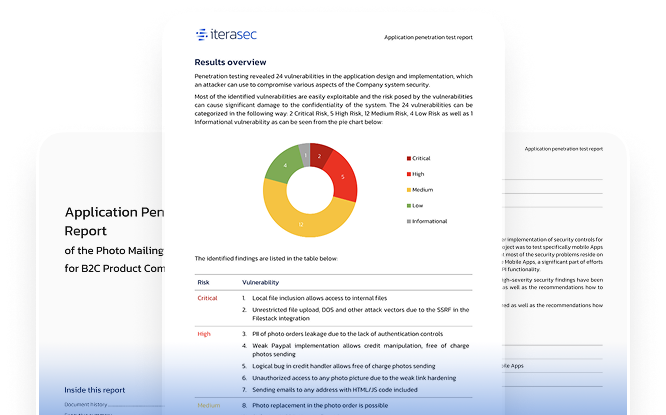Why AI and LLM Security Matters
AI systems, especially large language models, introduce new and complex attack surfaces that can be exploited in unexpected ways. Threat actors constantly evolve their techniques, seeking to manipulate models, extract data, or cause reputational damage. Below are some prevalent concerns that highlight why organizations cannot overlook AI/LLM security testing services:

Evolving Attack Vectors
Traditional security measures can miss AI-specific threats such as prompt injection or adversarial inputs.
Data Privacy and Compliance
Sensitive data used in training or interacting with AI may be exposed if not tested against privacy breaches.
Operational Disruption
Malicious manipulation of AI responses can compromise critical business workflows or degrade service availability.
Brand and Trust Damage
AI-generated inaccuracies or offensive outputs pose serious reputational threats, potentially undermining stakeholder confidence.
Our AI/LLM Penetration Testing Services Can Detect
Iterasec’s penetration testing approach focuses on identifying risks that are unique to AI and LLM-integrated environments. With our LLM penetration testing services, we detect issues before they turn into exploitable vulnerabilities or compliance violations. Common findings include:
Prompt Injection Vulnerabilities
Malicious prompts crafted to override AI guardrails, reveal sensitive information, or manipulate outputs.
Data Poisoning Attacks
Attempts to alter training data or introduce hidden backdoors, compromising the integrity and reliability of AI models.
Model Extraction and Theft
Unauthorized methods used to reverse engineer or replicate proprietary AI models, leading to intellectual property risks.
Insecure Plugin or Extension Design
Unsafe third-party integrations that can enable remote code execution, data exfiltration, or privilege escalation within AI systems.
Insecure Output Handling
Oversights allow XSS, SSRF, CSRF, or privilege escalation when AI-generated content interacts with other components or end-user interfaces.
Data Privacy Breaches
Leakage of regulated or confidential information during AI processing, storage, or interaction phases.
Compliance and Regulatory Gaps
Potential misalignment with standards like GDPR, HIPAA, or other sector-specific rules pertaining to AI/LLM operations.
Our methodology/approach for LLM pentesting services
Our approach to AI-driven system pentesting is based on in-depth investigation of numerous security breaches. We align our testing framework with globally recognized security standards and best practices, focusing on the latest advancements in AI security testing. Key aspects of our approach include the following:
Discover Our AI/LLM Pentesting Services Process
Our AI security testing services follow a structured, time-based assessment approach, ensuring clarity, efficiency, and alignment with stakeholder expectations. The process includes the following key stages:
- 1Kickoff Meeting & Scope Definition – Initial discussions to outline project objectives, identify the scope of work, and establish key deliverables.
- 2Project Scheduling – Setting timelines and milestones to ensure a well-organized testing process.
- 3Test Case Development & Approach Definition – Designing individual test cases and refining the project-specific testing methodology.
- 4Dynamic Testing – Conducting manual and automated security assessments, leveraging industry best practices and tools.
- 5Weekly Status Meetings – Regular progress discussions to present findings, address challenges, resolve questions, and align on next steps.
- 6Report Writing & Delivery – Comprehensive documentation of findings, risk assessments, and recommendations, typically delivered within 2-3 weeks after test completion.
Why Choose Iterasec for AI and LLM Penetration Testing?
Iterasec LLM penetration testing services are distinguished by our:Expert Cybersecurity Team
Our team of security experts finds juicier and more complex security vulnerabilities than other vendors.
Pragmatic Approach
We start with threat modeling and tailor our testing methodologies to suit your specific application requirements.
Delivery Quality
On-time, clear communication, proactive. Underpromise, overdeliver – that’s our motto.

Protect Your AI and LLM Systems from Security Threats
Contact usExpert Cybersecurity Team
Cybersecurity is an industry of constant learning. Each of our colleagues has a professional and certification development plan.

Explore our sample LLM penetration testing service report
Please contact us, and we will send you a sample report covering several applications.
Contact usWhat our clients say
Awards and Recognitions
2023
Top cybersecurity consulting company
2023
Top cybersecurity consulting company
2023
Top ponetration testing company
Discover All Our Cybersecurity Services
FAQs
Penetration testing is critical for AI and LLM systems because it uncovers vulnerabilities unique to these advanced technologies. By conducting thorough AI/LLM penetration testing, organizations can preemptively address security loopholes, such as prompt injections or data poisoning, that are less likely to be detected through traditional web or network assessments. Ultimately, security testing for AI helps safeguard intellectual property, maintain data integrity, and uphold stakeholder trust.
Yes. Our LLM pentesting services include a comprehensive, step-by-step report outlining all identified vulnerabilities, exploited attack paths, and recommended remediation measures. The report is designed to be technically thorough for security teams and accessible for non-technical stakeholders, ensuring clarity around the risks discovered and actions needed to strengthen AI/LLM security.
Our penetration testing services for LLM aim to detect a wide range of issues, including prompt injection weaknesses, data extraction flaws, insecure output handling, model theft risks, and data poisoning opportunities. Additionally, we identify traditional web or network-related vulnerabilities that can impact backend systems supporting AI. By integrating security testing for LLM with broader cybersecurity practices, organizations gain holistic protection against emerging threats.
LLMs face specific attack vectors such as malicious prompt manipulation, adversarial input crafting, and attempts to reverse-engineer the model architecture or training data. These techniques can lead to unauthorized data exposure, compromised model performance, or even a complete takeover of the AI service. Leveraging pentesting for AI enables us to simulate these real-world threats, ensuring the resilience of your AI applications.
We adhere to strict privacy guidelines and industry best practices throughout every AI security testing engagement. Our methodology includes securing test environments, limiting data access to authorized personnel, and anonymizing sensitive information whenever possible. By integrating regulatory frameworks into our penetration testing services for AI, we help you maintain compliance while thoroughly assessing your systems for AI-specific threats.
Contacts
Please tell us what are you looking for and we will happily support you in that. Feel free to use our contact form or contact us directly.
Thank you for submission!
We’ve received your request and will get back to you shortly. If you have any urgent questions, feel free to contact us at [email protected]






